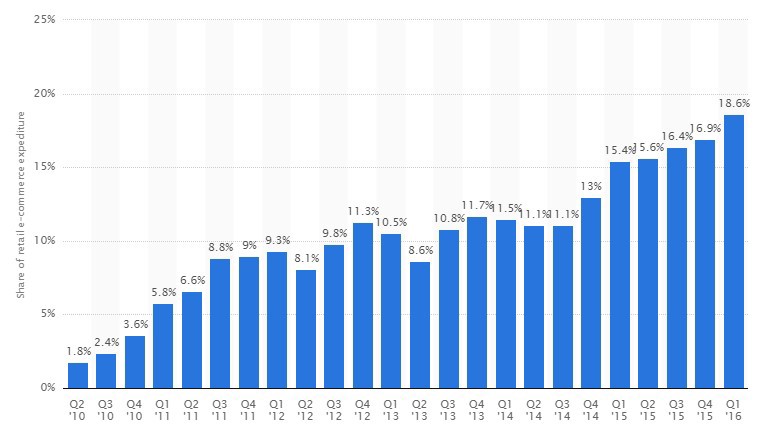
Simon Werner-Zankl
CEO & Co-Founder of Trustcruit
Human Resources Most Certain Change in the Coming Years…
... how to master 🔧 this change and what it will give back to you personally☀️
I often get this question from people in HR: what is really going to happen to HR? What changes are around the corner, what changes do you see long-term?
I will not really dig into the big question and write the long full article (or book?📔) about this but I felt that there is one change that I am so supercertain will effect most HR departments. Some may already have experienced this but then I will provide the simple guide how to master this and get ahead of your competitors. If you learn to master this it will help you prove your value, negotiate salary, strengthen your resume and help you land better jobs.
The change is ROI based thinking
Looking at other departments of a company it is quite clear they already do this to a greater extent than HR. Bare with me on this walk through of Simple Inc. We say that Simple Inc is made up of these departments:
- IT 💻
- Sales 💰
- Marketing 📣
- Finance 👛
- and HR ️👱 👧
For IT 💻 this is best explained from the so commonly used thinking of: if we invest in this software we can reduce the number of people working related to this with X full time employees. This I would say is not so common lately but in IT this has moved into more a knowledge related reason. This is one example from Gitlab and how they where thinking about their database and scaling it. The one line interpretation of that article is that the cost of acquiring these skills will be higher than buying this from the ones that are passionate about this (for example Amazon AWS). ROI based thinking is IT has been there for ages and I think you all agree.
Looking at Sales 💰 I think this is the most easy to relate to on terms of ROI based thinking. People working in sales has always been measured in terms of turnover and underlying metrics affecting the turnover. People in sales use tools to measure this, they have scoreboards, wages tightly connected to turnover and much more. And on the other side if this ROI based thinking doesn’t add up this mostly will lead to an ended employment.
Moving on to Marketing 📣 this is a department that has seen this change in recent years, mostly because how easy it is to measure metrics and ROI these days. Google AdWords is built solely on the telling back of ROI. Facebook gives exact clicks, cost per click, conversion and you will know exactly what you pay to get a new visitor to your site and what you pay per buying customer. This gives marketing people the power if they find/invent/get lucky to create e.g Facebook ads that convert buyers for say 1$ and your total win is positive, then you have a money machine. But it isn’t easy to get that lucky 😎 A company in Sweden ramped sales using several successful Facebook ads landing at $10M+in 4 years and a profit of $5M. The driver here was successful Facebook ads that scaled awesomely.
Finance 👛 is where I have my experience, working 7 years as a CFO. We knew exactly the cost of every invoice produced, every single action in accounting, salary’s and other bigger tasks. That company was growing every year for 7 straight years at around 50–70%! We had such a good control over our processes and how much we “earned” adapting to new routines, software’s and other investments. One thing that almost every company adopted at that time was scanning incoming invoices and processing the whole approving of the invoices. I had already built my one kinda version of this so we had a pretty cheap process for this. Once a month someone called me and said they could lower my costs of handling invoices, because we didn’t scan. No one could lower the costs, for like 5 years. Then when someone promised they could, we invested with almost instant ROI 😀 And, this lead to having more time which we used to help sales with administrative tasks related to finance and sales got more time to be on the field.
Maybe this is extreme example for finance, I actually don’t know. Maybe it was just me. Anyhow, let’s move on to HR and compare to these examples above.
I am quite confident HR ️👱 👧 people will recognize and at least agree that HR is far behind IT, sales, marketing and finance on this one. That also runs down to the other side of that statement:
HR will see a big shift towards a more ROI focused thinking.
Work with me on this. We work together with some of the the biggest companies in the world, helping them to work with metrics in HR. The most common metrics today I would sum up to:
- Employee turnover (how many quit each year)
- Training cost per new employee
- Cost of HR per employee
- Maybe there are more commonly used HR measures, send me an email and I’ll add them
What of these can HR change to be a part of the company growth? Maybe the first one, but is that really something that HR has influence in changing?
One of the best books in HR is Work rules! by Laszlo Bock. Laszlo spent 10 years at Google creating a work place that year after year got rated one of the best places to work. In almost any example in the book Laszlo measures the effects and works with improving the processes. For more detailed how Laszlo did this at Google and the fantastic outcome read the book. I will move on to tell you where to start, to master the skill of ROI based thinking and be ready when the change comes (yes you are right, to some extent it has already started but we are not even close to other parts of a company).
How to master this skill and level up your ROI game 😎
First I am going to make the same reflection as a always do talking about this. What other markets has seen this change in recent years? Some examples you find above where I describe the change in Marketing and Finance. But I want to add one more not focusing on a specific department at a company.

This is the growth in online purchases, only on mobiles. The number of mobile purchases in e-commerce was close to 0 before 2010 and after that there was this huge shift to mobile! Maybe it doesn’t look that changing but in only a few years stores where threatened by companies only operating online. This lead to a total chaos at many companies selling through physical stores only. They just had to start selling online and those that already had this up n running shifting from computer to mobile was though for most of them. They where forced to learn how to sell online, build all the infrastructure for online sales, packaging and delivering (besides having all the costs for their normal business in the physical stores). Now this threat for those that survived and dealt with this has shifted again (read more here). If you want to read even more about e-commerce and their challenges, this is a great report. Enough about others problems, change is coming the HR way and this is how to deal with it, like others has dealt with it before.
1. Metrics ❓
Start here. If you could choose to improve one thing would it be your employer brand? Would it be difficulties to recruit new talent? Employee satisfaction? Employee engagement? Something else?
Find what parts you find the most important to you and your company. If it is not obvious or you think it is all of the above, don’t be frightened! Just pick one and start there, it is easier to get one thing on the right track than 5 at a time.
In this example we say that recruiting new talent is tough. Referring to ROI focus here, we must always ask: if HR improve this metric, will it help the company growth? In this fact we say that we know it will since we are it-consultants. More people more revenue.
Now we have found our potential treasure 💎 and let’s get to work.
2. Measure, measure, measure! 📊
We want to be part in company growth and with a number show our boss/the CEO or anyone else that HR also equals to money 💵. It is time to establish your initial starting point. How do we succeed here today and what is it worth when we hire someone new? Grab former people you hired and calculate your numbers from this.
Many have this or at least it is not that far away. The goal is to arrive at the net win of every new hire, it can of course be segmented down so sales, marketing, finance, administration and so on are separated.
3. Get yourself Moving!
Now establish how you should proceed with improvements. In recruiting we have seen a perfect way is to collect feedback from candidates to start working with improvements in the recruitment process. How do recruiters perform in in interviews? What do candidates think about our job ads? How many technical issues do candidates perceive when applying?
There are tools today that measures the candidate experience 100% automatically so it is not that big of a step to start. Then use this feedback and make changes accordingly. Candidates will tell you what they want you to improve and how to be prepared for the future.
The model you need to learn:
Metrics, Measure, Move — repeat
So find the right Metrics. Measure. Get yourself Moving and work with improvements. I will end this long article with this short ending 😊
As always I am more than happy to discuss recruiting and the challenges further so feel free to hook up with me on Linkedin here or send me an email: simon@trustcruit.com 👋
Get notified on new blog updates
+ get our popular candidate experience ebook for free